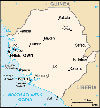
The long march towards accountability for war criminals took a significant step forward yesterday, as the Special Court for Sierra Leone convicted three leaders of the Revolutionary United Front, or RUF, rebel group on assorted counts of crimes against humanity and war crimes. These convictions, against Issa Sesay, Morris Kallon, and Augustine Gbao, constitute several exciting precedents for international criminal justice: the first conviction for forced marriage, and the advancement of the use of ‘joint criminal enterprise’ charges, which were used against the trio for conspiring with Charles Taylor to control Sierra Leone’s diamond fields. Although Sierra Leone is still struggling to recover from its devastating civil war, there have been some notable milestones in the past couple of years, including the completion of the UNAMSIL peacekeeping mission and two rounds of free-and-fair post-conflict elections, a key benchmark for political transitions. There are a couple of key lessons from Sierra Leone that policymakers should keep in mind when they address vexing conflicts in eastern Congo, Sudan, and Somalia today:
- Do military intervention right: At first, U.N. peacekeepers in Sierra Leone lacked the capability and will to actually enforce peace, and were taken hostage by the RUF in 2000. Eventually the British military intervened, and with only a few hundred well-trained and resourced troops, was able to vanquish the RUF and restore security. Most importantly, the Brits instituted an ‘over the horizon’ security guarantee – that for a decade, if spoilers tried to derail peace, U.K. forces would be back, fast. So far, it’s working.
- Tackle the resource issue: The RUF’s campaign of terror was driven by their control over the diamond trade. Part of the solution was a global consumer campaign against ‘blood diamonds’ that resulted in an international effort to certify this trade, known as the Kimberly process. Today in eastern Congo, certain minerals used in electronics play much the same role as diamonds did in Sierra Leone. Consumers need to press companies and governments to act on this model.
- Hold war criminals to account: Breaking the cycle of impunity works. Unfortunately, the Special Court’s highest profile case, against Charles Taylor, is threatened by a shortfall in funding. Worldwide budgets are stretched thin from the global economic downturn, but skimping on international criminal justice is an atrocious idea.

